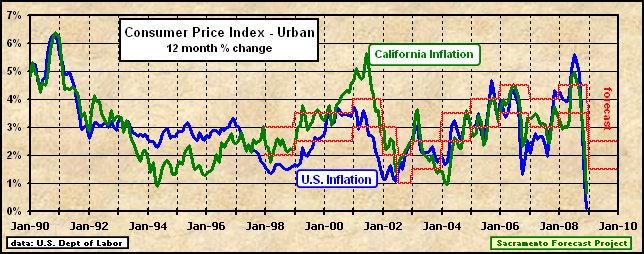About the Goldilocks Economy
What is the Goldilocks economy and is it making a comeback? Read about it here:
Embracing the New Goldilocks Era
It seems like old news that the stock market keeps going up in the face of dour economic news. But what is being overlooked by many pundits is that the ‘great moderation’ or Goldilocks economy that began in the early 80’s in making a comeback. This is despite cries from pessimists such as Paul Krugman or Roubini of impending hyperinflation, or on the contrast fears of a deflationary spiral.
The Goldilocks economy is an economic environment characterized by tame inflation, low rates, deregulation, easy money, rising consumer debt and spending, high tech innovation, globalization, tax cuts, free trade, increased efficiency, risk taking, a falling dollar, appreciating home prices, modest economic growth, and rising consumer prices. The so called Goldilocks economy began in the early 80’s following Paul Volker’s crusade against inflation, and seems to have persisted ever since, with only a few bumps in the road.
But do we have the conditions for a Goldilocks economy? It seems so. Regarding deregulation, although Obama, Barney Frank, and other high ranking officials may talk tough about increased regulations of hedge funds and lenders, very little has actually materialized. I am very doubtful any sweeping regulation will be passed, because Geithner is aware that such regulation would have unintended consequences such as stiffing future IPOs, economic growth, and innovation. The main beneficiaries of this deregulation will be Goldman Sachs, which is pioneering algorithmic trading, and Mastercard and Visa.
The dollar will fall, and commodity and consumer prices will rise in the coming months and years as the Goldilocks economy gains monentum and investors shift funds to risker assets. The Obama administration and futures administrations will continue to run up the deficit, therefore also helping to depress the dollar. However, a falling dollar and rising consumer prices will have positive implications of exporters, and ultimately the stock market. Companies that thrive off commodity inflation such as Potash Corporation, Cleveland Cliffs and, Monsanto will benefit. Large cap tech stocks such as Google, Rimm, and Apple, for example, derive a large portion of their sales from overseas. When the dollar falls these companies benefit.
Inflation will remain tame for a forseable future without inflation shocks despite record high deficits. Why is this possible? Because the Chinese continue to buy our treasury bonds because they need somewhere to park their surplus, and they are also dependent on the United States to buy their goods. It’s this interdependency that allows the fed to print an arbitrary amount of money to prime the economy during recessions, without the associated risks of hyperinflation. During the 2002-2007 bull market the Bush administration ran up a large deficit to fund the Iraq war, but hyperinflation never ensues. Consumer prices rose, but not exceedingly so as you can see form the graph below:

Obama has plans to raise taxes on the top one percent of earners, but I doubt he’ll ever get around to doing so because rising taxes is a very unpopular political move. Also, an increase in federal taxes will have to eventually pass through the senate, where I’m certain it will fail. There will be no tax increases in the foreseeable future.
High tech innovation and free market capitalism is still alive and well. Silicon Valley internet companies such as Facebook, Myspace, Google, Twitter, are at the forefront the second dotcom boom under the moniker web 2.0. On the other hand, Apple and Research in Motion are leading the second incarnation smart phone/personal electrinic revolution. These companies are essentially immune to the recession,which is why facebook’s traffic continues to surge and why Apple, Google, and RIMM continue to beat earnings estimates.
The culmination of the above factors, and a gradual increase in consumer spending, household debt, manufacturing activity and the revival of the housing market will set the stage for many years of modest, steady GDP gains. These gains will be manifested in a long bull market very similar to the one between 2002-2007 with the same leadership. Don’t fall prey to the doom and gloomers in the mainstream media who keep dwelling on negativity regarding job loss and financial crisis. Instead, embrace the resurgence of the Goldilocks’s economy, and invest accordingly.